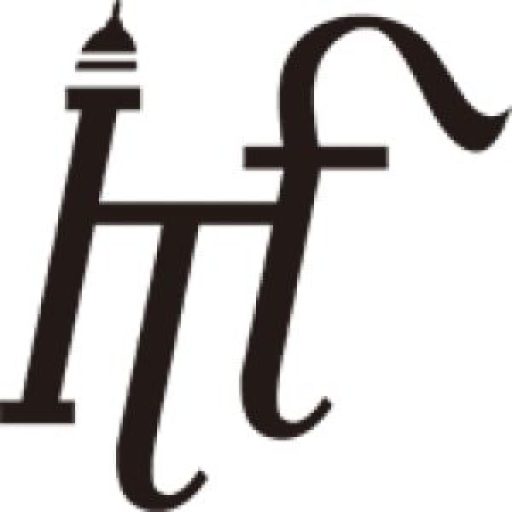AEPC
WWEPC
PDEXCIL
ICC
AEPC
About AEPC ( The Apparel Export Promotion Council )
The Apparel Export Promotion Council, sponsored by the Ministry of Textiles, Government of India was incorporated on 22nd February, 1978, as a Company Limited Guarantee and licensed under Sec. 25 of the Companies Act 1956 with the objective to promote, increase, develop export of all types of Readymade garments.
Main activities of the Council
- Exploring markets and identifies items offering export potential
- Conducting market surveys on identified items and provide market intelligence
- Establishing contacts with the prospective buyers to generate their interest in India products
- Providing library facility to members to know latest fashion trends in world market
- Sponsoring trade delegations, study teams ans sales teams to market to abroad
- Organizing buyer-seller meets for selected products/group of products
- Developing new markets for existing products
- Helping in products development and modification suit the needs of different markets
- Advising on international marketing
- Participating in trade fairs and exhibitions abroad
- Disseminating international marketing information
- Coordinating with various Government agencies/department with regard to the export promotion programmes
- Collection cost data of garments and provide to the Govt. for the fixation of duty drawback and cash compensatory support
- Advising Govt. on the export-import policy in respect pf readymade garments
- Advising Govt. on formulation of the entitlement policy
- To Provide trained manpower to the Readymade Garment Industry through Apparel Training and Design Centres.
WWEPC
About WWEPC ( WOOL & WOOLLENS EXPORT PROMOTION COUNCIL )
WWEPC has been established by the Government of India on 6th October, 1964 as a non-profit organization under the Society Registration Act, 1860 with the responsibility to enhance the exports of all types of wool and woollen/ acrylic blended/ pashmina products like knitwears, sweaters, jersey, pullovers, fabric worsted and woollen suiting’s, shawls, stoles, ponchos, mufflers, socks, thermal wear, blankets, machine made carpets, felts, yarns, tops/noils, hand woven textiles and other made-ups.
WWEPC is registering authority under Foreign Trade Policy which is basically promoting, supporting and assisting firms in entering the international markets.
WWEPC provides invaluable assistance to Indian exporters as well as importers/ buyers who choose India as their preferred sourcing destination for woollen products.
WWEPC help registered member-exporters through various functions direct or indirect to grow and compete in global markets and hence plays a significant role for any exporter in India. The Council has more than 2000 members who are manufacturers and exporters of woollen/acrylic blended products.
WOOL AND WOOLLEN TEXTILES SECTOR
In India Woollen textiles and clothing industry is relatively small compared to the cotton and manmade fibre based textiles and clothing industry. However, the woollen sector plays an important role in linking the rural economy with the manufacturing industry, represented by small, medium and large scale units. The product portfolio is equally divergent from textile intermediaries to finished textiles, garments, knitwears, blankets, carpets and an incipient presence in technical textiles. Wool industry is a rural based export oriented industry and caters to civil and defense requirements for warmer clothing.
The woollen industry in the country is of the size of Rs. 11484.82 Crores and broadly divided & scattered between the organized and decentralized sectors.
The organized sector consists of: Composite mills, Combing units, Worsted and Non Worsted spinning units, Kintwears and Woven Garments units and Machine Made Carpets manufacturing units.
The Decentralize Sector includes Hosiery and knitting, Power-looms, Hand knotted carpets, Druggets, Namadahs and Independent dyeing, Process houses and Woollen Handloom Sector.
There are several woollen units in the country, majority of which are in the small scale sector.
The industry has the potential to generate employment in far-flung and diverse regions and at present provides employment in the organised wool sector to about 12 lakh persons, with an additional 20 lakh persons associated in the sheep rearing and farming sector. Further, there are 3.2 lakh weavers in the carpet sector.
PDEXCIL
About PDEXCIL ( Powerloom Development & Export Promotion Council )
Powerloom Development & Export Promotion Council (PDEXCIL) is set up by the Ministry of Textiles, Govt. of India in the year 1995. The Council has been registered under Section 25 of The Companies Act, 1956, having its Registered Head Office at Mumbai, Maharashtra & Regional Office at Erode, Tamil Nadu.
The main objectives of the PDEXCIL is to promote, support, develop, advance and increase powerlooms and export of Powerloom fabrics and made-ups thereof and to carry out any such activity in such manner as may be necessary or expedient.
PDEXCIL ACTIVITIES
- Participation in the international textile exhibitions under various schmes of Govt. of India, like MDA and MAI at subsidies charges.
- PDEXCIL organizes Buyer Seller Meet jointly with the office of the Textile Commissioner at different locations in India for promotion of powerloom fabrics and made ups at vary nominal participation charges.
- Organizing various training programmes/workshops/seminars to educate the Entrepreneurs on various business related issues and promotion of various schemes of Govt. of India like GIS, ISPSD, and TUFS etc.
- PDEXCIL publishes Newsletter, to disseminate valuable market information & other information
- PDEXCIL with financial assistance from Government of India has also established Design Studio at Erode for providing training and filling the skill gap in the industry.
- PDEXCIL through its regional office in Erode is conducting skill developing training programme under ISDS and has now entered in the main phase of the scheme
ICC
About ICC (Indian Chamber of Commerce)
Founded in 1925, Indian Chamber of Commerce (ICC) is the leading and only National Chamber of Commerce having headquarter in Kolkata, and one of the most pro-active and forward-looking Chambers in the country today. Its membership spans some of the most prominent and major industrial groups in India.ICC’s forte is its ability to anticipate the needs of the future, respond to challenges, and prepare the stakeholders in the economy to benefit from these changes and opportunities. Set up by a group of pioneering industrialists led by Mr G D Birla, the Indian Chamber of Commerce was closely associated with the Indian Freedom Movement, as the first organised voice of indigenous Indian Industry. Several of the distinguished industry leaders in India, such as Mr B M Birla, Sir Ardeshir Dalal, Sir Badridas Goenka, Mr S P Jain, Lala Karam Chand Thapar, Mr Russi Mody, Mr Ashok Jain, Mr.Sanjiv Goenka, have led the ICC as its President.
ICC’s North-East Initiative has gained a new momentum and dynamism over the last few years, and the Chamber has been hugely successful in spreading awareness about the great economic potential of the North-East at national and international levels. Trade & Investment shows on North-East in countries like Singapore, Thailand and Vietnam have created new vistas of economic co-operation between the North-East of India and South-East Asia. ICC has a special focus upon India’s trade & commerce relations with South & South-East Asian nations, in sync with India’s ‘Look East’ Policy, and has played a key role in building synergies between India and her Asian neighbours like Singapore, Indonesia, Bangladesh, and Bhutan through Trade & Business Delegation Exchanges, and large Investment Summits.
ICC also has a very strong focus upon Economic Research & Policy issues – it regularly undertakes Macro-economic Surveys/Studies, prepares State Investment Climate Reports and Sector Reports, provides necessary Policy Inputs & Budget Recommendations to Governments at State & Central levels.
The Indian Chamber of Commerce headquartered in Kolkata, over the last few years has truly emerged as a national Chamber of repute, with full-fledged State Offices in New Delhi, Mumbai, Guwahati, Bhubaneshwar, Hyderabad, Agartala,Siliguri, Ranchi and Patna functioning efficiently, and building meaningful synergies among Industry and Government by addressing strategic issues of national significance.
ICC’s flagship Annual Conferences include the North-East Business Summit, India Energy Summit, Convergence India Leadership Summit, Agro Protech, ICC Insurance Summit, ICC Mutual Fund Summit, to name a few. These Summits take place all across India and abroad, and address key strategic issues.


